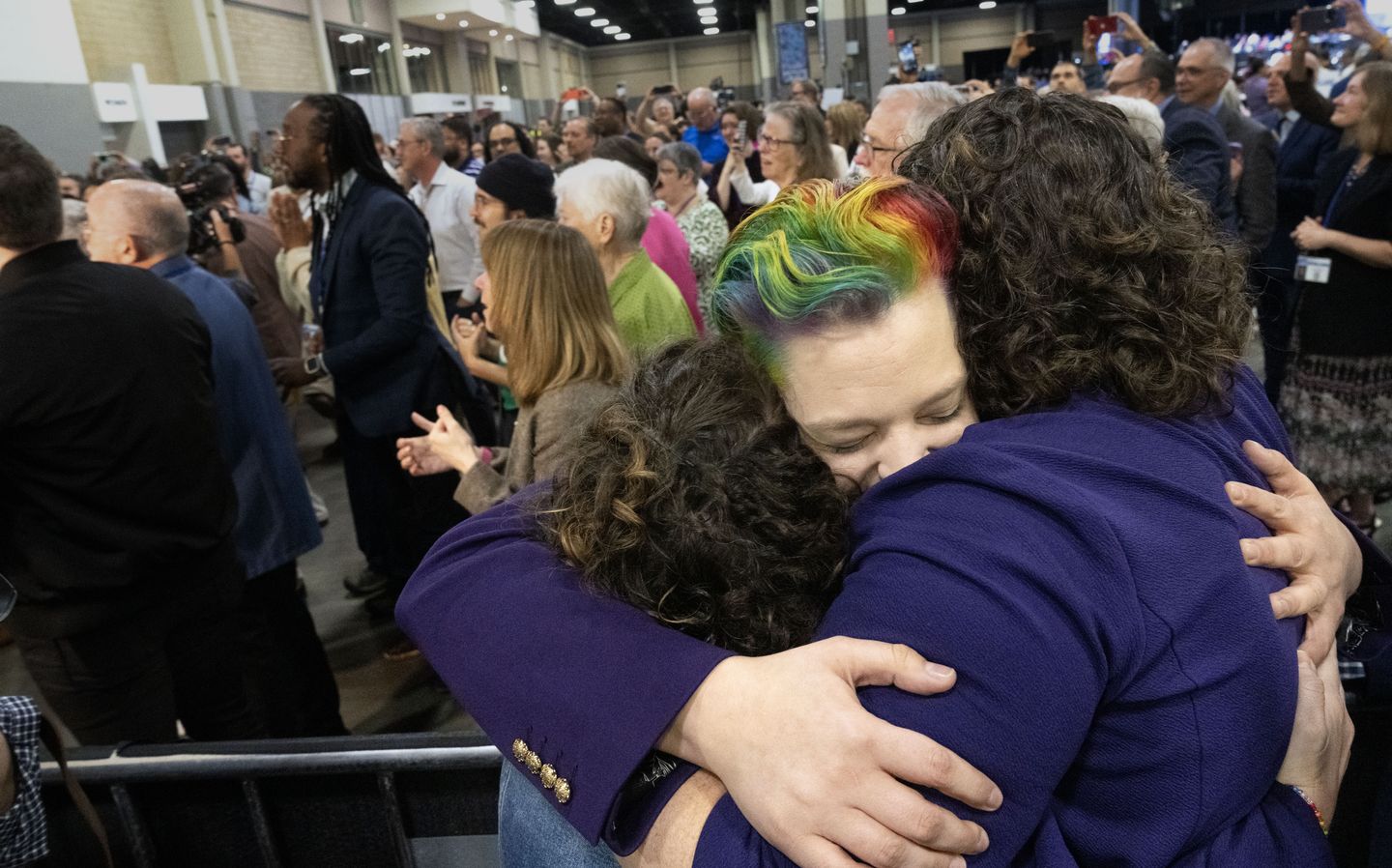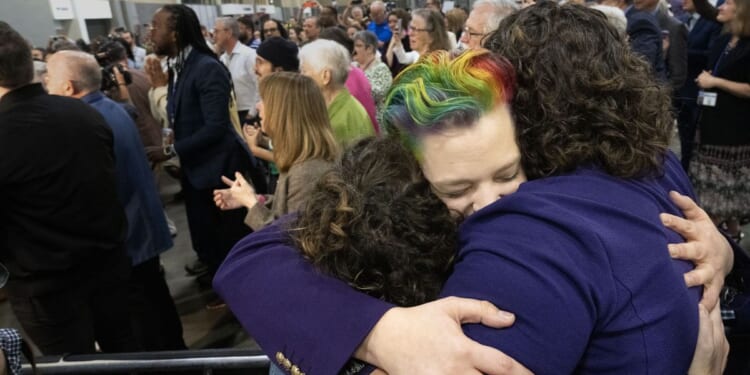
The United Methodist Church delegates voted Wednesday to allow LGBTQ individuals to serve as ministers, reversing a 40-year-old ban on the ordination of “self-avowed practicing homosexuals.”
The ordination change was one of 22 measures passed in a single “consent calendar” vote — 659 in favor and 67 opposed — at the group’s 2024 General Conference business session in Charlotte, North Carolina.
Upcoming votes to allow the blessing of same-sex unions and a “Revised Social Principles” document that redefines marriage as a union between two people, not a man and a woman, will complete a shift by one of America’s oldest Protestant denominations.
The global UMC General Conference opened last week after one-quarter of the church’s U.S. mostly conservative congregations had left the denomination. The remaining, mostly liberal members appeared eager to approve the changes, which bring them in sync with other mainline Protestants in the nation.
“Draw the circle, draw it wider still,” a group of delegates sang after Wednesday’s initial vote, as others cried or cheered.
Retired UMC Bishop Hope Morgan Ward prayed “for healing from the memory of our journeys” after the floor vote and asked that God would “use us as peacemakers and servants in the healing of your work and in the welcoming of all people into the embrace of God.”
But Mark D. Tooley, a United Methodist and president of the Institute on Religion & Democracy, has said the “self-congratulatory nature” of the meeting may obscure the future for the denomination, which numbers 5.4 million U.S. members and a total of 9.9 million worldwide.
“They’re very joyful that with conservatives gone, the progressive agenda is flying through by very, very large margins,” Mr. Tooley said Tuesday in anticipation of the policy-changing votes. “They’ve waited decades for this to happen, but mostly they’re not acknowledging what the impact is going to be. … It’s a very celebratory, General Conference that I think not fully prepared for what’s about to happen.”
The issue of LGBTQ inclusion in the UMC has been simmering for decades. More than 100 clergy and ordination candidates publicly identified themselves as gay in 2016. Progressive members and clergy said they would “disrupt systemic injustice” with their declaration, according to a report at the time by UM News, the official church news service.
In 2019, a special legislative session reaffirmed the policies that are being changed this week, with supporters hoping to forestall a schism.
But the split came. UMC delegates this week could vote to allow dissenting congregations to leave and retain their church property.
Mr. Tooley said the large number of church departures over sexuality issues heralds an imminent decline in financial stability.
“The clergy who are age 55 or in their early 50s, they’ll be able to survive till retirement,” he said. “But if you’re a clergy in your 30s or 40s, you should be very troubled because the money is going to run out and the number of churches available to host a pastor, to be able to afford a full-time pastor, are going to dramatically reduce.”

